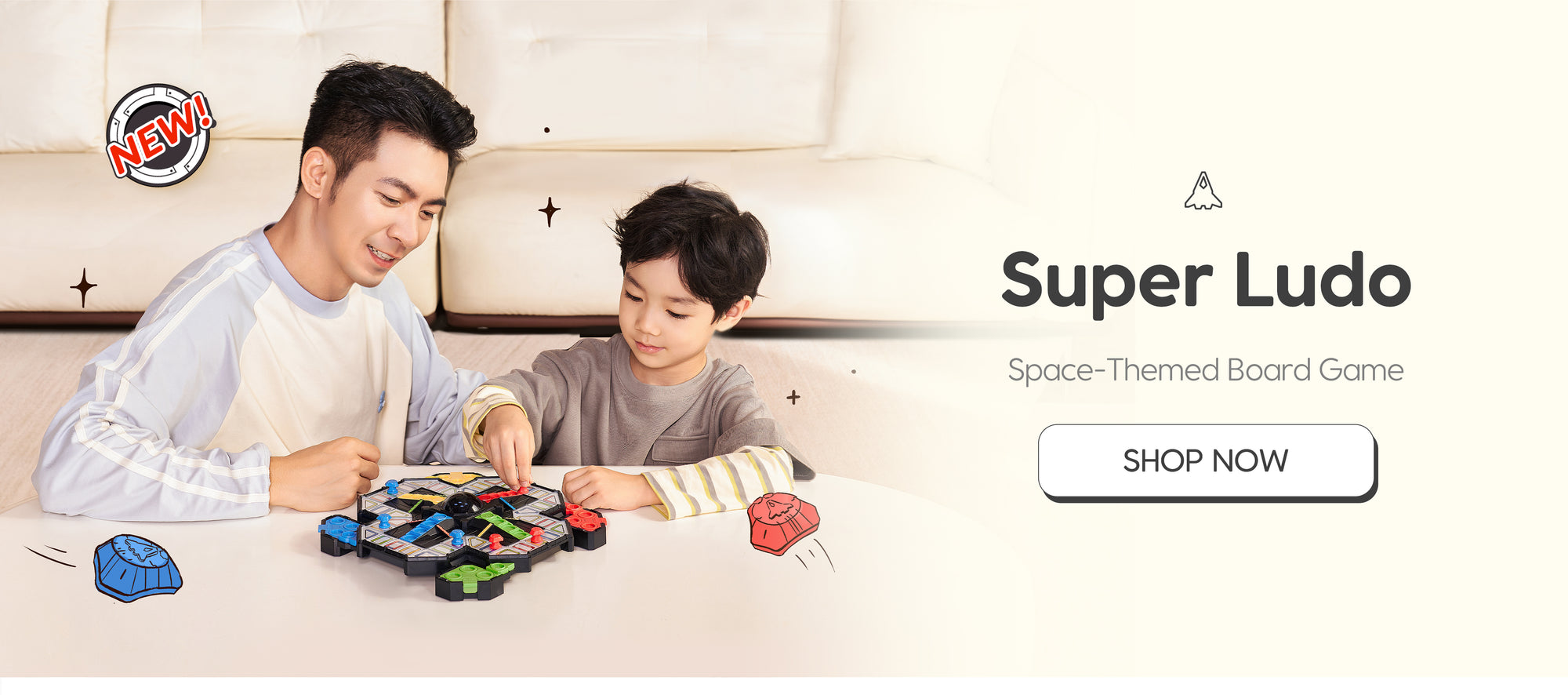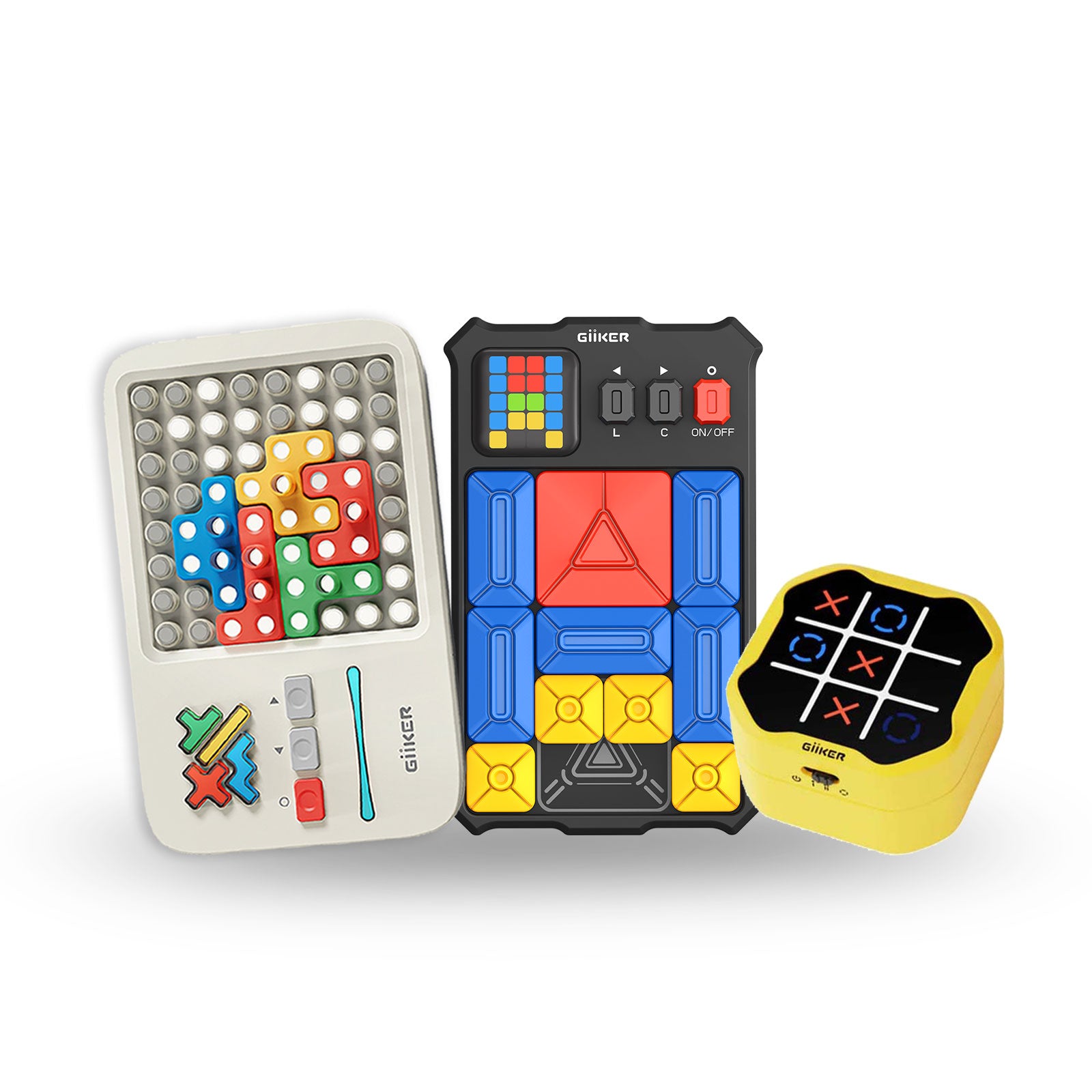Memory Games and Crazy Game-Super Slide
The sliding puzzle, a classic brain-teaser, is not just a toy for children; it’s an excellent tool for family education and cognitive training. Whether in schools, at home, or during corporate training, the sliding puzzle has extensive applications. This article explores the multiple benefits of the sliding puzzle and its practical uses in various settings.

1. A Great Aid for Family Education
In math and logic classes, teachers can use the sliding puzzle as a teaching tool to help students understand spatial relationships, geometric shapes, and problem-solving strategies. For kids aged 8-12, the sliding puzzle not only stimulates their thinking skills but also helps them grasp math concepts in a fun way. Incorporating toys like GiiKER and Kanoodle can further enrich the learning experience.
2. A Bridge for Parent-Child Relationships
The mind games is an ideal choice for family entertainment. Family members can play together during leisure time, enhancing their relationships while exercising their brains. This interaction allows children to learn through play and brings more joyful moments to the family. Playing puzzle games fosters communication and bonding among family members.
3. A Tool for Cognitive Training
For older adults, regularly playing the sliding puzzle can help maintain brain vitality and delay cognitive decline. By tackling complex puzzles, seniors can improve their memory and attention, enjoying healthy mental challenges. Engaging in brain games for kids also offers cognitive benefits for all ages.
4. A Practice for Teamwork
In corporate training or team-building activities, the sliding puzzle can serve as a team collaboration exercise, requiring participants to work together to find the best solution. This interaction enhances team cohesion and hones members' communication and collaboration skills.
5. An Auxiliary Tool for Psychological Therapy
Psychologists may use the sliding puzzle as part of cognitive behavioral therapy to help patients improve their attention and decision-making skills. This engaging game format can reduce patients' anxiety, making it easier for them to engage in the therapeutic process.
6. A Practical Tool for Programming and Algorithm Design
For programmers and software engineers, the sliding puzzle is an excellent practice tool for algorithm design. Developing a program to solve the sliding puzzle not only sharpens coding skills but also deepens understanding of algorithms.
7. A Key Topic in Artificial Intelligence Research
In artificial intelligence research, the sliding puzzle is widely used to test and compare different search algorithms and heuristic methods. Its complexity and challenge make it a popular topic among AI researchers.
8. Healthy Competitive Activities
Hosting sliding puzzle competitions can encourage healthy competition among players and facilitate the sharing of problem-solving techniques. This not only enhances players' sense of participation but also allows them to gain new insights in a collaborative environment.
9. A Continuous Personal Challenge
For puzzle enthusiasts, the sliding puzzle offers a way to challenge themselves constantly. Trying different variations and difficulty levels can provide players with joy and exercise their thinking skills. It's a great way to enjoy travel games for kids or simply pass time at home.

Conclusion
The sliding puzzle is more than just a brain game; it’s a multifunctional tool for promoting learning, enhancing parent-child relationships, and improving cognitive abilities. Educators, family members, and team-building participants alike can benefit from it. Pairing it with other toys like the GiiKER series and Kanoodle puzzle game offers children aged 8-12 a richer gaming experience that stimulates their learning interest.
When looking for suitable educational games for kids 8-12, choosing toys like GiiKER Tic Tac Toe, GiiKER Super Slide Puzzle, and Kanoodle Puzzle Game ensures that children grow while having fun.
By integrating the sliding puzzle into daily life, whether as travel games for kids or family entertainment, endless joy and learning opportunities await children and families. Start your sliding puzzle journey now, and let every game become a chance for growth and learning!



